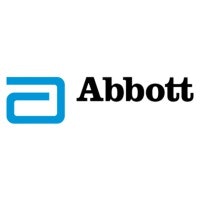Now more than ever, a comfortable retirement depends on secure, stable investments. Unfortunately, the right stocks for retirement won’t just fall into your lap. In this series, I look at 10 measures to show what makes a great retirement-oriented stock.
Until very recently, Abbott Laboratories (NYSE:ABT) was one of the biggest well-diversified players in the health-care space. Yet even with the company having completed its major spinoff, the continuing Abbott Laboratories (NYSE:ABT) still has a wide array of different businesses. How will Abbott Laboratories (NYSE:ABT) fare in its new form? Let’s revisit how Abbott Laboratories (NYSE:ABT) does on our 10-point scale.

With decades to go before you need to tap your investments, you can take greater risks, weighing the chance of big losses against the potential for mind-blowing returns. But as retirement approaches, you no longer have the luxury of waiting out a downturn.
Sure, you still want good returns, but you also need to manage your risk and protect yourself against bear markets, which can maul your finances at the worst possible time. The right stocks combine both of these elements in a single investment.
When scrutinizing a stock, retirees should look for:
Size. Most retirees would rather not take a flyer on unproven businesses. Bigger companies may lack their smaller counterparts’ growth potential, but they do offer greater security.
Consistency. While many investors look for fast-growing companies, conservative investors want to see steady, consistent gains in revenue, free cash flow, and other key metrics. Slow growth won’t make headlines, but it will help prevent the kind of ugly surprises that suddenly torpedo a stock’s share price.
Stock stability. Conservative retirement investors prefer investments that move less dramatically than typical stocks, and they particularly want to avoid big losses. These investments will give up some gains during bull markets, but they won’t fall as far or as fast during bear markets. Beta measures volatility, but we also want a track record of solid performance as well.
Valuation. No one can afford to pay too much for a stock, even if its prospects are good. Using normalized earnings multiples helps smooth out one-time effects, giving you a longer-term context.
Dividends. Most of all, retirees look for stocks that can provide income through dividends. Retirees want healthy payouts now and consistent dividend growth over time — as long as it doesn’t jeopardize the company’s financial health.
With those factors in mind, let’s take a closer look at Abbott Laboratories (NYSE:ABT).
| Factor | What We Want to See | Actual | Pass or Fail? |
|---|---|---|---|
| Size | Market cap > $10 billion | $54.5 billion | Pass |
| Consistency | Revenue growth > 0% in at least four of five past years | 5 years | Pass |
| Free cash flow growth > 0% in at least four of past five years | 4 years | Pass | |
| Stock stability | Beta < 0.9 | 0.19 | Pass |
| Worst loss in past five years no greater than 20% | (8.3%) | Pass | |
| Valuation | Normalized P/E < 18 | 10.51 | Pass |
| Dividends | Current yield > 2% | 1.6% | Fail |
| 5-year dividend growth > 10% | NM* | NM | |
| Streak of dividend increases >= 10 years | 0 years* | Fail | |
| Payout ratio < 75% | 53.4% | Pass | |
| Total score | 7 out of 10 |
Source: S&P Capital IQ.
*Spinoff of AbbVie makes prior comparison not meaningful. Total score = number of passes.
Since we looked at Abbott Labs last year, the company lost a point, as the spinoff of AbbVie Inc (NYSE:ABBV) resulted in a lower dividend. But the stock has performed well, rising about 20% over the past year after adjusting for the spun-off AbbVie.
After a long wait, Abbott Laboratories (NYSE:ABT) finally broke itself into two pieces. AbbVie got the company’s proprietary drug business, including blockbuster Humira, which has sales that amount to almost half of AbbVie’s projected revenue. Abbott got to keep the rest of the business, which includes generic drugs, nutritional products, diagnostics, and vascular products.
In its first quarterly report as an independent company in January, Abbott Laboratories (NYSE:ABT) reveled in being in what CFO Thomas Freyman called a “no-Humira world.” Although its nutritional segment did well and its diagnostics business had a nice jump in revenue, Abbott’s generic drug segment and vascular health unit didn’t fare as well. In particular, nutritionals will be a key driver of performance for the new Abbott, and it’s faring well in emerging markets such as China. By contrast, Mead Johnson Nutrition CO (NYSE:MJN) reported difficulties in China earlier last year.
Meanwhile, for generics, Abbott needs to focus on emerging markets as well. Increasingly, industry giants Teva Pharmaceutical Industries Ltd (ADR) (NYSE:TEVA) and Dr. Reddy’s Laboratories Limited (ADR) (NYSE:RDY) have moved toward emerging markets, with Teva Pharmaceutical Industries Ltd (ADR) (NYSE:TEVA) in particular having found respite from falling U.S. sales by looking to faster-growing countries. The key is for Abbott to use generics as a way to break into new markets, and then once its name is better known, it can start selling higher-margin products.
For retirees and conservative investors, the new Abbott may seem like an unknown quantity. But despite some concerns about a lower yield, the company looks like a solid health-care pick for retirement portfolios.
Keep searching
Finding exactly the right stock to retire with is a tough task, but it’s not impossible. Searching for the best candidates will help improve your investing skills, and teach you how to separate the right stocks from the risky ones.
The article Will Abbott Labs Help You Retire Rich? originally appeared on Fool.com and is written by Dan Caplinger.
Fool contributor Dan Caplinger and The Motley Fool have no position in any of the stocks mentioned.
Copyright © 1995 – 2013 The Motley Fool, LLC. All rights reserved. The Motley Fool has a disclosure policy.




